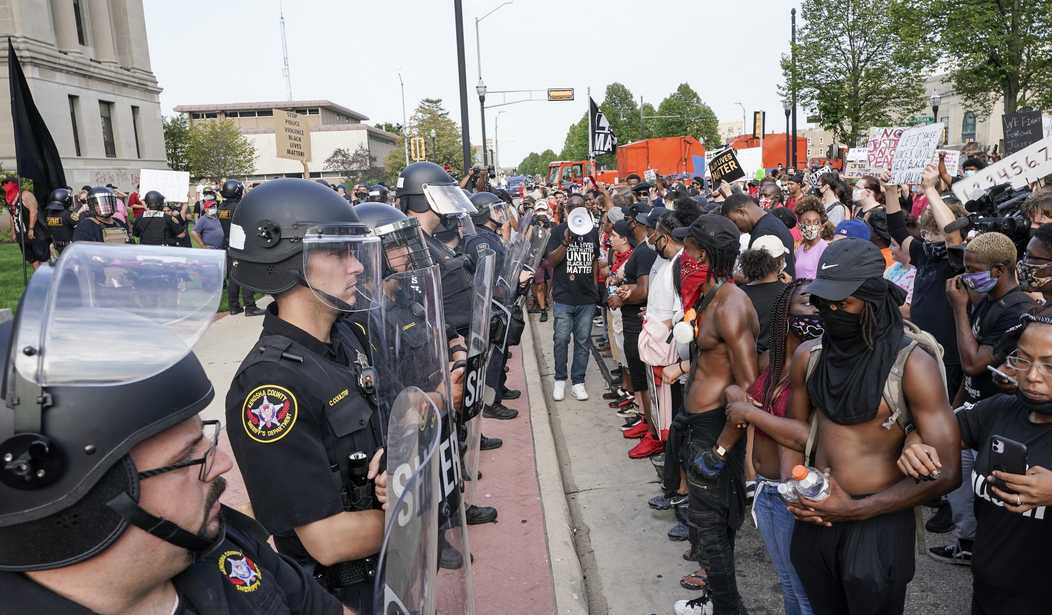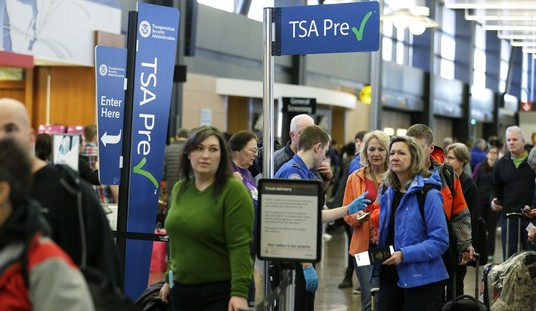Editor's note: This column was authored by Wesley Shirola.
As if being a police officer in the United States weren’t psychologically demanding enough already, officers have faced increasing mental health challenges in the wake of George Floyd's death and the nationwide reckoning on race that’s followed.
This newfound emotional harm has been largely ignored by many mainstream media outlets, which instead have focused on stories about the difficulties of being black in America, white privilege, and defunding the police. Admittedly, these discussions are legitimate and worthy, but refusing to acknowledge the mental health burden on our police officers is simply irresponsible and it needs to stop.
Each and every day, our officers run toward danger while everyone else runs away. They deal with Americans who’ve overdosed, been shot or stabbed, driven while drunk, or been raped and assaulted. They get spit at and shot at. Yet they face all of these things head-on, doing their best to protect us and keep our cities and neighborhoods safe. That’s their job, their duty.
And it’s carried out at great cost. Aside from the chronic exhaustion that many American workers complain of, countless officers suffer from many mental illnesses such as depression, anxiety, PTSD, and addiction, to name just a few.
The profession’s high suicide rate is particularly concerning. A 2019 U.S.Department of Justice report to Congress estimated that the suicide rate was 28.2 per 100,000 for male officers and 12.2 per 100,000 for female officers using data from 2015. While the suicide rate in the country as a whole is among the highest of the OECD countries, the rate for police officers is alarmingly higher. Again using 2015 data, the suicide rate for male officers is about 1.35 times the nationwide rate for males. The suicide rate for female officers is staggeringly higher at around twice the nationwide rate for females.
Recommended
It’s too early to say whether this summer’s protests of racial injustice will increase the suicide rate among police officers, but it’s certain that their mental health will take a hit.
The increasing stigmatization of policing combined with the psychological drain from working the front lines of the protests is a perfect storm for the development of debilitating mental illnesses.
Over the past few months, police officers across the country have been called racists and other hateful things, faced violence, been injured, and received death threats.
The toll that these actions have on any officer is heavy, but the effects the protests have on the mental health of police officers are even worse for officers that are black or brown themselves.
Charles P. Wilson, a retired police officer who’s now the chairman of the National Association of Black Law Enforcement Officers, said that being a black police officer is “hard as hell.”
Ivan Lofton, a black highway patrol trooper in Utah, said that many people struggle to understand why he is a black man living a blue life — even some among his family and friends. “I’ve seen one post that says black men in law enforcement are the weakest men in the world,” he told Fox News. Just because he puts on a police uniform every day doesn’t mean he’s forgotten his family and culture.
"What becomes tough is when they have to decide between their employment and alliance to their racial identity," said Dr. Candice Nicole Hargons, the director of the Center for Healing Racial Trauma and assistant professor at the University of Kentucky.
Clearly, something needs to change. The fight for a more just America for black and brown people cannot come at the cost of other Americans. Psychotherapy and medication can, and do, help, but these services are both increasingly hard to find and increasingly expensive, which speaks to the presence of a deeper problem and the need for a more systemic change.
In the meantime, though, protestors and activists must cease berating our nation’s police officers. The psychological harm is simply far too great. The fight for civil rights should continue, just in a more sincere and strategic way. There most certainly are racist police officers. But harming the many to punish the few is never the right answer, and it most certainly is not the answer to the problem of racial injustice in America.
Wesley Shirola is a Young Voices contributor and a senior at Northwestern University where he studies Psychology, Public Health and Data Science. His research examines the intersection of science, medicine, law and policy. He is the editor-in-chief of The Remarker. Follow him on Twitter @WesleyRemarker.

























Join the conversation as a VIP Member